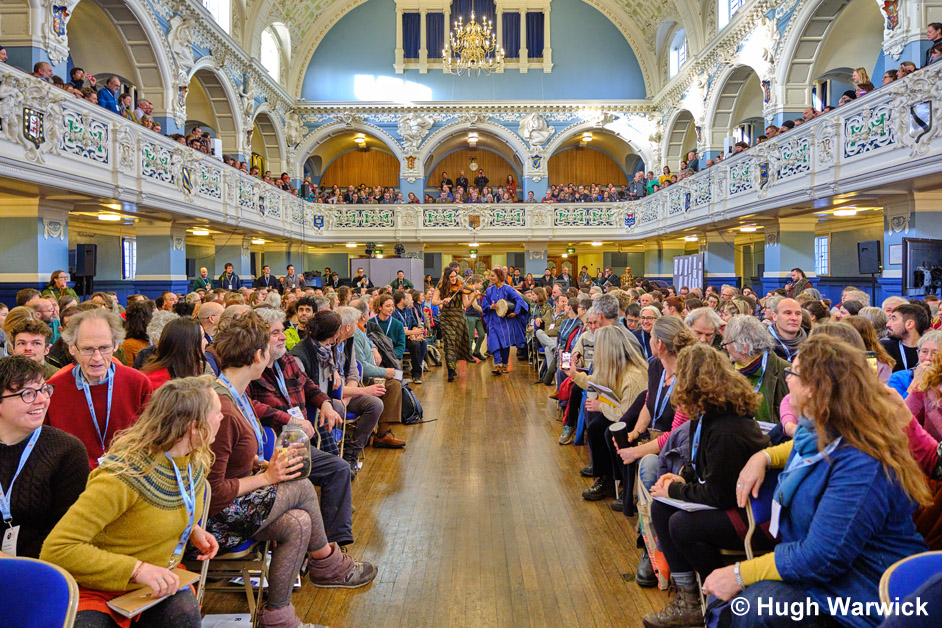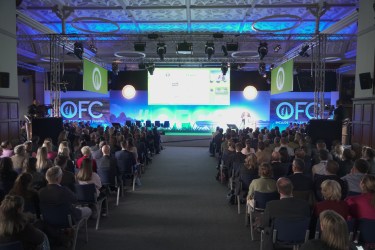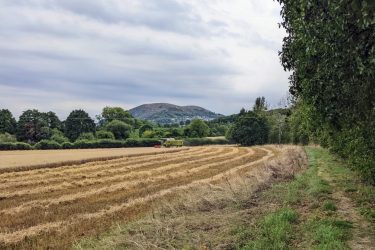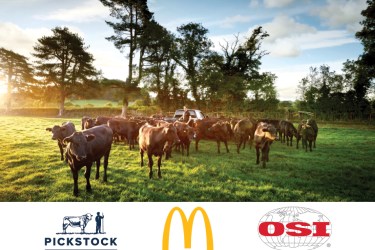The Oxford Real Farming Conference celebrated its 15-year anniversary early in 2024. We sent Senior Sustainability Consultant Hattie McFadzean along for her first taste of the event.
Here’s a report on what she made of proceedings, and five major themes that emerged for her from the event.
What is the Oxford Real Farming Conference?
ORFC describes itself as an “alternative farming conference” that “brings the real food and farming movement together…” to share progressive ideas. Subjects include agroecology, regenerative agriculture, organic farming and indigenous food and farming systems.
Through panel discussions, workshops and keynote speeches, the conference delves deep into farming practices and techniques. Additionally, it addresses the bigger questions relating to our food and farming system.
This year’s conference brought together 1800 attendees, over 350 speakers, and over 60 sessions. So there’s a lot of perspectives, all providing a huge number of ideas to discuss. It’s a great event if you’re looking for information to help flesh out ideas.
Valuing nature while delivering agricultural sustainability
ORFC set out its alternative credentials from the start: the opening plenary began with the blessing of a local apple tree. The goal of this year’s conference was to enhance the connectivity between farmers, growers, academics, and industry stakeholders who seek to farm in harmony with the environment.
Over the two days, the gathering promoted community-based decision making and celebrated the good work of the food-production network to create environmentally and financially sustainable agricultural systems. Five principles that could carve a pathway to a sustainable food system became clear.
The five principles from Oxford Real Food Conference 2024
1. Livestock can be part of the answer to climate change
Correct stocking rates are vital for our dairy, beef, and lamb industry, as we seek ways to mitigate climate change. ‘Less but better meat’ is a mantra used by many supporters of the industry.
When farmed carefully grazing animals promote biodiversity, improve the environment and enhance the pastures that comprise 50% of UK land. In addition, paying our farmers for enhancing the environment challenges the erroneous narrative that farming and nature are in opposition.
2. The principles of the circular economy are important
The term “circular economy” refers to the reuse and regeneration of materials or products as part of a production process. There are many examples in agricultural supply chains that demonstrate circular economy principles, especially livestock feed.
Simon Fairlie, during the Livestock in the Landscape panel discussion, highlighted how by-products and so-called waste products can be better linked on local scales. However, he expressed frustration that this is often limited by current regulations. Integrating supply chains and matching demand and supply on local levels promotes agricultural resilience. However, this needs to be supported by regulations rather than hindered.
3. Take ownership – work collectively to achieve lasting change
For many in the industry shifts in global trade patterns, government policy pivots, and changes to subsidies have led to feelings that it is impossible to influence anything. Many producers feel that decisions are all made remotely, out of their grasp.
However, at ORFC many presentations stressed the idea of taking ownership. Primarily, this means that producers should work collectively to make decisions that are driven by the principle of serving the interests of the local land area, and its supply chain. This should include influencing changes in landscape policy.
Many presentations at ORFC included calls for changes in the way producers ask their unions and lobbyists to represent agricultural and ecological interests, and have opinions heard on local issues of importance. DeSmog articulated this particularly well during an eye-opening presentation.
4. Diversity is key
ORFC is an incredibly diverse and inclusive farming conference. This year, there were speakers from every continent (apart from Antarctica, I think), assembling a wealth of experts with massively diverging specialisms and experiences. This range brought a huge collective resource of varied knowledge. When pooled, this helps everyone to discover climate resilience, adaptation, and the sharing of technological innovation.
Applying this principle of co-operation is massively beneficial to farm diversification, and the stability that this can bring when facing up to the challenges of changing climate and business conditions.
5. Recognise the power of communities
The effectiveness of enhancing the ecological aspects of agricultural landscapes is limited when applied individually. However, working with others locally to ensure that initiatives complement each other enhances their value greatly.
The power of local communities to share information and best practice, improve lands through appropriate stocking rates, enhance natural flood management, and more, is vital. In fact, without a collective approach, achieving positive change that benefits producers, the public, and the planet is going to be impossible.
Is Oxford Real Farming Conference a challenge to farming?
As ever, the overriding challenge in food production is to find a way to produce food plentifully and profitably in a way that does not destroy the environment from which it springs. That is why we all need to openly evaluate and learn from all manner of successfully innovative practices and the traditions that created them. Top-down solutions have their place, but so do bottom-up ones.
Philosophy, ethics, and an emphasis on long-term environmental stewardship have a place within and alongside the profit motive. We would do well to find spaces for them to speak calmly and constructively to one another, rather than viewing them as existing in mutually exclusive realms.
Promar meshes the food network
Promar works with farmers, retailers, governments and processors to understand all levels of the food sector. We are currently contributing to ground-breaking work to help the industry hit vital emissions reduction targets. If you’d like to find out more about what we do, and how we can help you to achieve profitability while reducing your business’ emissions, please contact us.








